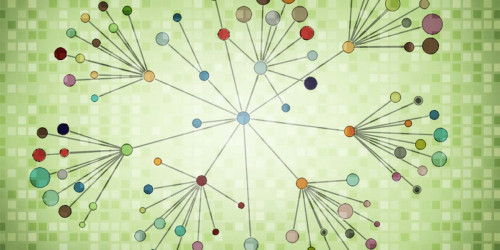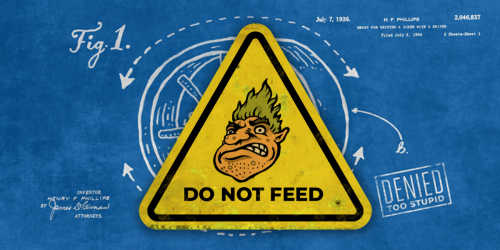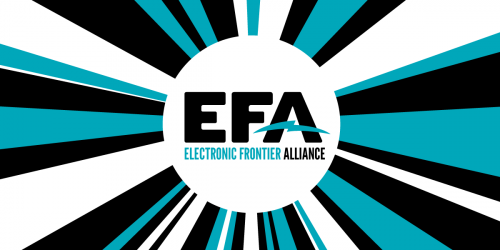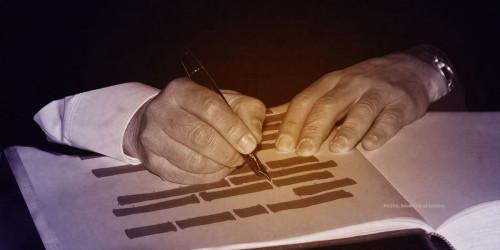Last week the Librarian of Congress issued his final decision (pdf) limiting copyright owners’ ability to sue you for making full use of the works you buy. The short version: it’s a mixed bag. On one hand, the Librarian looked to the future, broadening existing exemptions for extracting clips from DVDs to include clips from movies distributed online, as well. At the same time, the Librarian refused to expand an exemption for "jailbreaking" smartphones to include the smartphone’s cousin, the tablet, even though there is little practical difference between the two devices. Equally illogically, the Librarian refused to grant an exemption for jailbreaking video game consoles.
Now the long version.
In case you haven’t been following this triennial process, here’s some background: The Digital Millennium Copyright Act prohibits "circumventing" digital rights management (DRM) and other "technological measures" used to protect copyrighted works. While this ban was meant to deter copyright infringement, the law is misused to chill innovation, free speech and fair use. The one ray of light: every three years the U.S. Copyright Office convenes a "rulemaking" to consider granting exemptions to the DMCA's ban on circumvention to mitigate the harms the law has caused to legitimate non-infringing uses of copyrighted materials. The Copyright Office pores over exemption proposals submitted by the public, weighs the pros and cons, and then offers recommendations to the Librarian of Congress, who ultimately grants or denies the exemptions.
In the 2012 rulemaking, EFF asked the Librarian to protect the jailbreaking of smartphones, electronic tablets, and video game consoles—liberating them to run operating systems and applications from any source, not just those approved by the manufacturer. EFF also asked for legal protections for artists and critics who use excerpts from DVDs or downloading services to create new, remixed works. Our goal was to build on and expand exemptions that EFF won in the 2009 rulemaking proceeding for jailbreakers and remix artists. Other groups similarly sought to build on exemptions for education uses, filmmaking, and multimedia e-books.
Hundreds of pages of material for and against these exemptions were submitted to the Copyright Office, including a petition with more than 27,000 signatures in support of the proposed jailbreaking exemptions. Then, this past summer, witnesses gathered in several days of hearings on both coasts. The Office heard from industry representatives and proponents, of course, but equally if not more important was the testimony from users who would be directly affected, such as vidders Jonathan McIntosh and Tisha Turk, and software developer Brad Lassey from Mozilla.
The Video Exemptions
Until 2009, the only people allowed to circumvent DVD encryption for fair use purposes were film and media studies professors. In 2009, that category was expanded to include all college and university professors, film and media studies students, documentary filmmakers, and noncommercial vidders. Now the Librarian has expanded it further, covering K-12 educators, all college students, multimedia e-book authors, and professionals who have been commissioned to make videos for nonprofit purposes. The new exemption also permits breaking encryption on online content, not just DVDs. That’s a big win for fair use creativity, and we are proud to have helped make it happen.
Also satisfying: the Register of Copyrights rightly rejected Hollywood’s claim that vidders and others should be happy to make do with the limited, pre-selected set of clips available for licensing, and/or low-quality clips generated by screen capture programs. On the first point, you shouldn’t need a license to engage in a fair use. And as Tisha Turk pointed out regarding screen capture:
One of the first rules of video editing is garbage in, garbage out: it’s easy to degrade source quality but impossible to improve it. If I start from images that are blurred or pixellated or otherwise compromised, then the best I’m going to end up with is a mess, and if my video is a mess then I can't make the points I want to make, either because people won't watch the video or because they literally won't be able to see what I'm trying to say.
Hollywood wouldn’t settle for low-quality source material, and neither should remix artists or their audiences. Happily, the Register got the point, and refused to treat remix artists as second-class creators.
But plenty of limits remain. For example, the user may take only a “short portion” of the original work for purposes of criticism and commentary and she must reasonably believe she needs to break the DRM to accomplish that purpose. Much worse, the exemption doesn’t extend to breaking encryption on HD or Blu-Ray disks, and fictional filmmakers are simply out of luck.
And this exemption does not affect toolmakers—i.e., those who develop and provide the tools that make circumventing encryption possible. Yep, that’s right—the DMCA only authorizes exemptions for breaking encryption for otherwise lawful purposes; there’s no parallel provision for creating and distributing the tools that make it possible (though other provisions of the DMCA may protect those activities). So you can use DVD-ripping programs, but you can’t make ‘em.
Finally, even though the Librarian affirmed yet again that using short portions of a movie for purposes of criticism or comment in a noncommercial video is a fair use, Hollywood can still use tools like YouTube’s Content I.D. system to take down such videos with the flip of a switch.
The Jailbreaking Exemptions
In 2009, EFF won an exemption allowing users to modify smartphones so that they could install independent software not necessarily authorized by the phone's manufacturer, carrier, or platform provider—a process known as “jailbreaking” for iPhones and “rooting” for Android phones. This time, we asked the Librarian not only to renew this exemption, but expand it to cover tablets. This shouldn’t have been a hard sell: in all important respects, tablets are simply larger mobile devices, right down to using the same access controls to restrict the programs users can install. They just aren’t marketed as phones, even though they can also be used to make calls.
The good news is that the Librarian renewed EFF’s exemption request for smartphones, relying on the Copyright Office’s finding that jailbreaking is a fair use. The Copyright Office noted in particular that the 2009 exemption hasn’t harmed the market for smartphones, and the renewal may even “make smartphones more attractive to consumers.” Score one for jailbreakers. (Unfortunately, as with the video exemptions, this carve-out applies only to tool-users, not tool-makers. That means you can rely on this exemption to jailbreak your phone, but not to distribute jailbreaking code to others.)
The bad news is that the Librarian refused to extend the exemption to tablets, claiming it was too hard to know which devices fall within this category. This is disappointing because the access controls on tablets and smartphones raise identical problems for consumers, and there is no reason why users should face DMCA liability for jailbreaking one but not the other—especially as the functionality of these devices continues to blur.
EFF separately asked that an exemption be granted for users to jailbreak video game consoles so that academic researchers and independent “homebrew” developers can take full advantage of their consoles’ potential without risk of DMCA liability. The Librarian denied this exemption after the Copyright Office expressed concern that jailbreaking even for legitimate uses would lead to more infringing activity. The Office was wrong, both on reasoning and policy. People who want to play infringing games aren’t going to be intimidated by a little additional DMCA liability. Absent an exemption, the only people hindered by the DMCA threat are legitimate users like researchers and independent software developers.
More generally, if you buy a device—whether it’s a phone, a video game console, a tablet, or an e-book reader—it’s yours, and you should be able to run any software you like on it. There’s no principled reason to allow users this freedom on some devices, but not others. We hope that in future rulemakings, the Librarian will recognize this fact.
Word to the Copyright Office: Time to Level the Field
EFF has participated in most of the rulemakings that have occurred since the DMCA was passed in 1998. We know first-hand the numerous procedural and practical obstacles to obtaining an exemption. It takes a major investment of time and resources—an investment that’s beyond the reach of most of the public. The Register of Copyrights and the Librarian of Congress would do well to go back to the drawing board and come up with a process, and a standard, that will help a broader array of concerned users to make their case for legitimate exemptions.
First, the process should be streamlined and simplified so that informed laypersons can meaningfully participate and make their cases for new exemptions. As it stands, the process tends to be dominated by legal experts (though laypeople may come in as witnesses). You shouldn't need an advanced degree (not to mention many hours of time) to seek to remove the DMCA shadow looming over your otherwise lawful activities.
Second, the Register should revisit the long-standing policy of making the proponent of an exemption demonstrate the need for it every three years, during each and every rulemaking—no matter how obvious the need for the exemption is, or how many times it’s been granted in the past. It’s absurd to automatically put the burden of proof on the people seeking an exemption under all circumstances, and it's not required by the DMCA. Once the Librarian grants an exemption, the burden should shift to those who oppose it to show in future rulemakings why it isn’t needed anymore.
Finally, the Copyright Office should be more receptive to granting exemptions for innovative uses of new and emerging technologies. The fact that an exemption was granted for smartphones but not tablets, even though they are virtually interchangeable devices with increasingly similar functionalities, shows that the rulemaking process doesn’t track the ways consumers are using those devices today. The exemption process should be designed to get the DMCA out of the way of otherwise legal, innovative uses happening now—not to leave a cloud of legal uncertainty to hang over the heads of users until a record can be built to “prove” how people have been using technology for several years.
EFF will keep fighting the good fight, but if the Copyright Office wants the rulemaking process to be truly meaningful, it needs to remove obstacles so that everyone with a legitimate need can effectively present their case. In the meantime, we thank our supporters, particularly the Organization for Transformative Works, the Samuelson Law, Technology and Public Policy Clinic, New Media Rights, Mozilla, bunnie Huang, and the thousands of people who contacted the Copyright Office to support our exemption requests.










